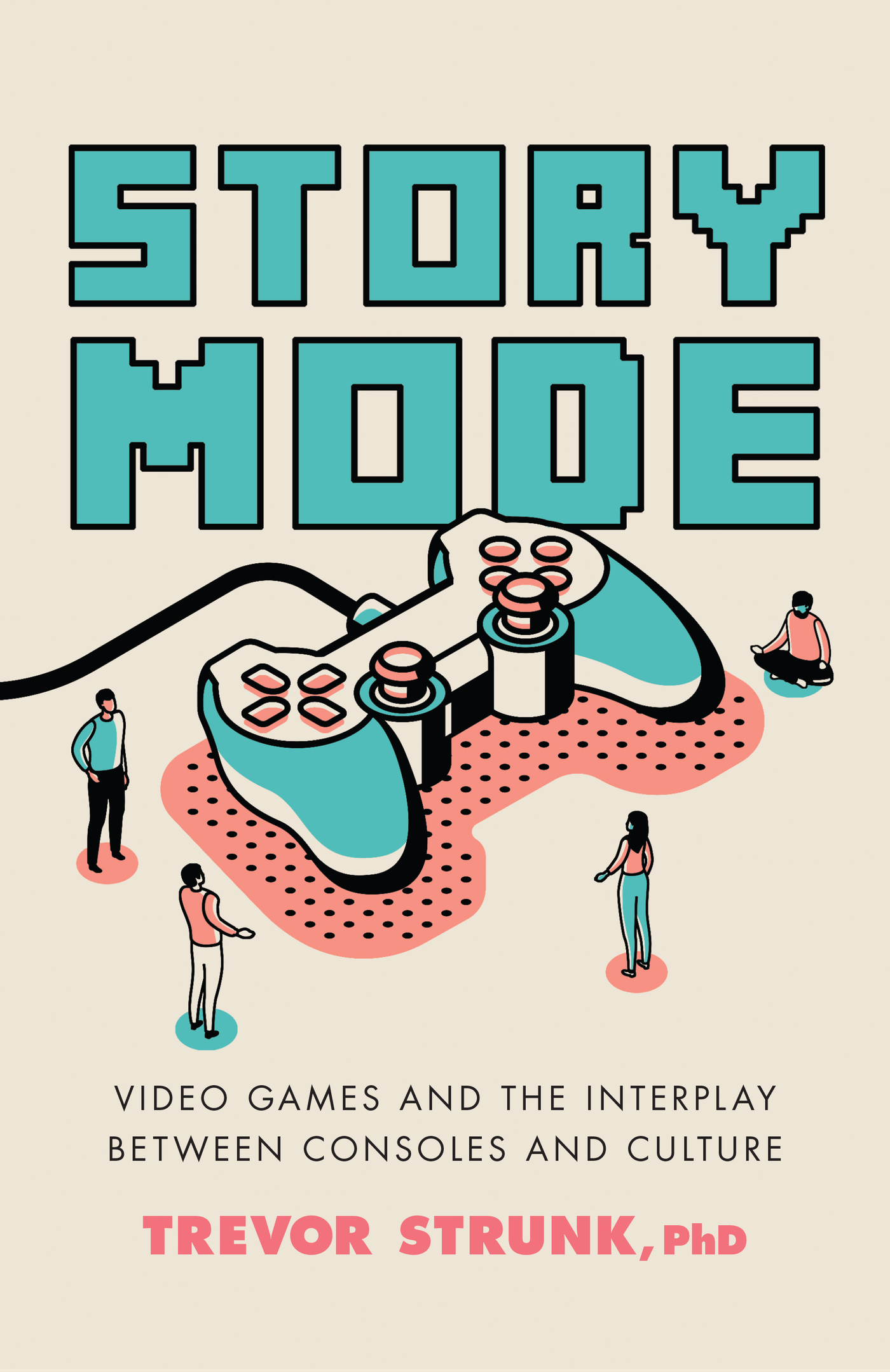Story Mode
Video Games and the Interplay
between Consoles and Culture
Trevor Strunk, PhD


An imprint of The Rowman & Littlefield Publishing Group, Inc.
4501 Forbes Boulevard, Suite 200
Lanham, Maryland 20706
www.rowman.com
Distributed by NATIONAL BOOK NETWORK
Copyright 2021 by Trevor Strunk
All rights reserved. No part of this book may be reproduced in any form or by any electronic or mechanical means, including information storage and retrieval systems, without written permission from the publisher, except by a reviewer who may quote passages in a review.
British Library Cataloguing in Publication Information Available
Library of Congress Cataloging-in-Publication Data
Names: Strunk, Trevor, 1985 author.
Title: Story mode : video games and the interplay between consoles and culture / Trevor Strunk, Ph.D.
Description: Lanham, MD : Prometheus Books, [2021] | Includes bibliographical references and index. | Summary: An incisive critique of the intersection of culture and video games by one of the sharpest games critics working today Provided by publisher.
Identifiers: LCCN 2021019899 (print) | LCCN 2021019900 (ebook) | ISBN 9781633886803 (cloth) | ISBN 9781633886810 (epub)
Subjects: LCSH: Video gamesSocial aspects. | Popular culture.
Classification: LCC GV1469.34.S52 S77 2021 (print) | LCC GV1469.34.S52 (ebook) | DDC 794.8dc23
LC record available at https://lccn.loc.gov/2021019899
LC ebook record available at https://lccn.loc.gov/2021019900
 TM The paper used in this publication meets the minimum requirements of American National Standard for Information Sciences Permanence of Paper for Printed Library Materials, ANSI/NISO Z39.48-1992.
TM The paper used in this publication meets the minimum requirements of American National Standard for Information Sciences Permanence of Paper for Printed Library Materials, ANSI/NISO Z39.48-1992.
To Kristin, Tilly, and Oscar:
thank you for supporting me and letting me take the time to make this and bring it into the world. I wont forget it.
I love you.
Introduction
The Novel, the Game, and the Long Road to LegitimacyThe Specificity of Video Games and How We Should Talk about Them
A couple of years ago, maybe around 2018, a friend of mine was working at a fairly small middle school in Southern California. He really liked his job and was able to connect with the kids since he was willing and capable of handling modern technology. He told me that teachers had no real idea who their students were anymore, which, to be totally fair, is not exactly a new or unique concern for teachers. Since time immemorial, teachers have assumed that their students have the same experiences that they did when they were young and have received for that assumption a sea of totally checked-out faces staring back at them. No kid, in other words, is really like their teacher and vice versa.
But this was something more, and it had to do with what kids were watching and consuming, media-wise, when they went home. This too isnt exactly news, as my teachers and I hadnt watched the same TV shows, either. But, he went on, this wasnt an issue of taste or preference: it was an issue of radically divergent contenthis students, he told me, werent going home to binge Netflix. They were going home to spend hours watching Twitch streams, which are channels focused strictly on a single streaming personality or streaming group, like a combination of a Facebook or Twitter profile and a TV channel.
Twitch, for anyone who doesnt know, is primarily for people who play video games regularly (whom well refer to as gamers, albeit an inexact designation) to display their gaming, often to a large audience. There are streams that focus on peoples everyday lives and of course some fun diversions like Twitch karaoke, but the primary function of Twitch is to connect people who are entertaining or who are very good at gaming to an audience of people who are incredibly interested in watching them do what they do best. Consider it like an online version of the one friend you knew who was really good at making trick shots, in basketball or Halo, except with an audience of potentially hundreds of thousands.
And although Twitch allows anyone with the means to stream their gaming freely, the streams that my friends students were watching were almost certainly the Twitch stars who pull in a serious viewership and income from playing and streaming video games. People watch these streams because these people are often playing at a near-professional levelas, most famously, the player Tyler Ninja Blevins does in Fortniteor because they are entertaining regardless of gameplayas with the half-comedy, half-gaming streaming collective, the Go off Kings. But the main difference between these streamers and the TV and film stars of the past is that their viewers arent watching them to vicariously live a life they could not. Instead, theyre watching them play a game (at least when it comes to popular stream games like Fortnite) that many of them could and do play themselves.
This seemed weird to me at the time, as it may seem strange to you if youre of a certain age when most gaming was done in a physically connected and limited space. The worst thing to me as a kid was watching a friend play a game who didnt give me a turn to play; the most tempting thing was to never give my friends a turn playing. Asking for one more turn to try to beat a level in Super Mario Brothers when I was six and my friend was desperate to try the weird new underground level; watching my cousins play Castlevania II and wanting a taste of that strange, gothic world and not getting one; playing at a new friends house just to see what the Playstation thing was all about and getting only that small taste of the Crash Bandicoot demo; not wanting to give up the controller until you got over that one hump in Street Fighter 3rd Strike or Tekken or Mario Kartthese were the kinds of feelings I experienced. Gaming with friends was, at its core, a power struggle for the controller, and watching wasnt just less fun, it was, for most, not fun at allit was an utter deferral and denial of satisfaction. So you can understand my confusion.
The difference here is that Twitch is not about the gaming itself: its not a space that primarily values the actual inputting of mechanics into a video game interface. Put another way, you wouldnt ask baseball spectators why they dont just go outside and play baseball themselves; the two activities have completely different appeals, even for professional or semiprofessional players. Playing the game is an active use of energy and engages a kind of adrenal push for participation; watching, on the other hand, is a passive engagement with the culture of sport, a more social and relaxing activity. What I and a bunch of other thirtysomethings out there had missed, in other words, was that gaming now had what sports does: a reason to engage socially, outside of the game itself.
The way games developed this culture is a longer story than this book can deliverand probably one that cant be told in a single book. In part this is because the popularity and cultural emergence of gaming has a lot to do with the development of gaming technology, the internet, and the rapidly distanced culture we all engage in now. But the mostly untold story involves how the act of gaming shifted away from the individual action of play and refocused on the communal experience we see in the popularity of Twitch gaming. Specifically, this story is about how gaming as a medium of cultural expression was shaped specifically by the reaction of its fans, more so than perhaps any other medium in the twentieth and twenty-first centuries.

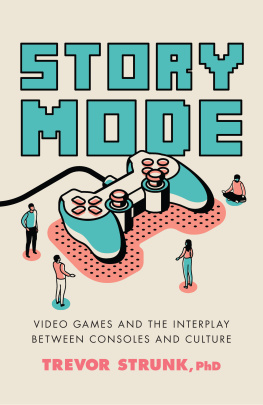

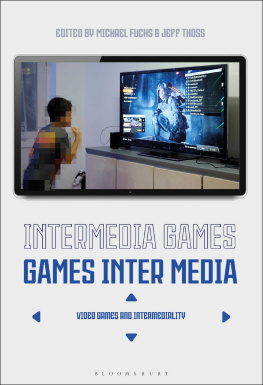
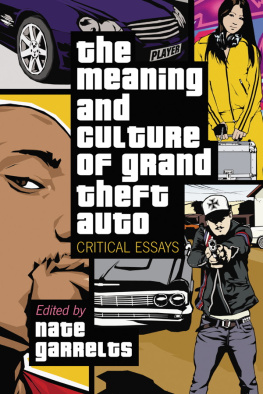

![Mark J. P. Wolf (editor) - Encyclopedia of Video Games: The Culture, Technology, and Art of Gaming [3 volumes]](/uploads/posts/book/279290/thumbs/mark-j-p-wolf-editor-encyclopedia-of-video.jpg)
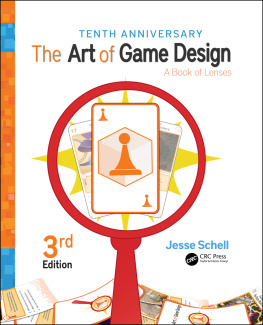
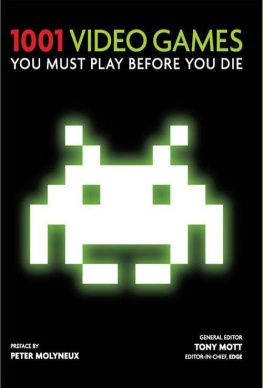


 TM The paper used in this publication meets the minimum requirements of American National Standard for Information Sciences Permanence of Paper for Printed Library Materials, ANSI/NISO Z39.48-1992.
TM The paper used in this publication meets the minimum requirements of American National Standard for Information Sciences Permanence of Paper for Printed Library Materials, ANSI/NISO Z39.48-1992.